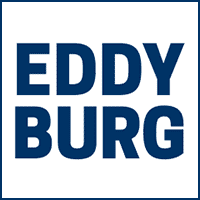

Good afternoon and welcome.
As half of the world’s population are city dwellers and the rapid increase in urban population is expected to continue it is central for the international community, including researchers, practitioners and academics to explore ways for making urbanization work for all people.
An extimated 1 billion people, a sixth of the global population currently lives within illegal settlements or environmentally hazardous residence locations, without security of tenure and adequate basic services such as water, roads or sewage systems.
Those areas, sometime as big as cities, are not what we define city, they are not even consider part of it, and it is not simply a matter of physical deficiencies. Poverty, vulnerability and exclusion from the economic and social opportunities of the city and from adequate housing conditions, also generate exclusion from democratic processes and lack of access to citizenship rights.
That is why, in such divided cities, we decided to discuss about the opportunity to consider the city as a common good, about the challenges posed by informal settlements and the struggle to find viable alternatives.
The assumption is that spatial forms are extremely relevant in determining the socio-ecological and political-economic conditions of a community. In the one hand the places are experienced and constructed by the intricate network of social relations. In the other hand our actions and straggles are inscribed in a given space and time.
This morning we heard about the voice of the communities and about their struggles in living in such conditions. But we also discussed about their vision and plan for the future and how professionals can help them to materialise and fulfil their expectations not just for themselves but also for the city as whole, to which they belong.
This afternoon we will hear the voices of the experts on urban issues and their contribution about alternatives.
We will start with the meaning of words like city and common good, and the relationship between spatial forms and social life through European experience and the vital role played by public spaces in the every day life of those cities.
Then, it will be presented what is an informal settlement and how the spatial and social space is produced in the slums.
As there is an ongoing debate on the question of what kind of measures and policy strategies would be necessary for responding to the challenge of slums, we will then continue the discussion about the alternatives of and to slum upgrading from different prospective starting from considering the slum as part of the city and not a separated problem. The crucial role played by planners and architects and the training of the professionals of tomorrow will also be addressed.
A conclusive talk will be about the response of urban movements and groups in Nairobi to the slum challenges and upgrading options, with specific reference to what we have heard this morning at the Toi Market.
However we look at the alternatives, a shift in perspective is needed both in the effort of coexisting in shared spaces and for overcoming inequality, alienation and injustice in cities.
And this demands a collective effort.